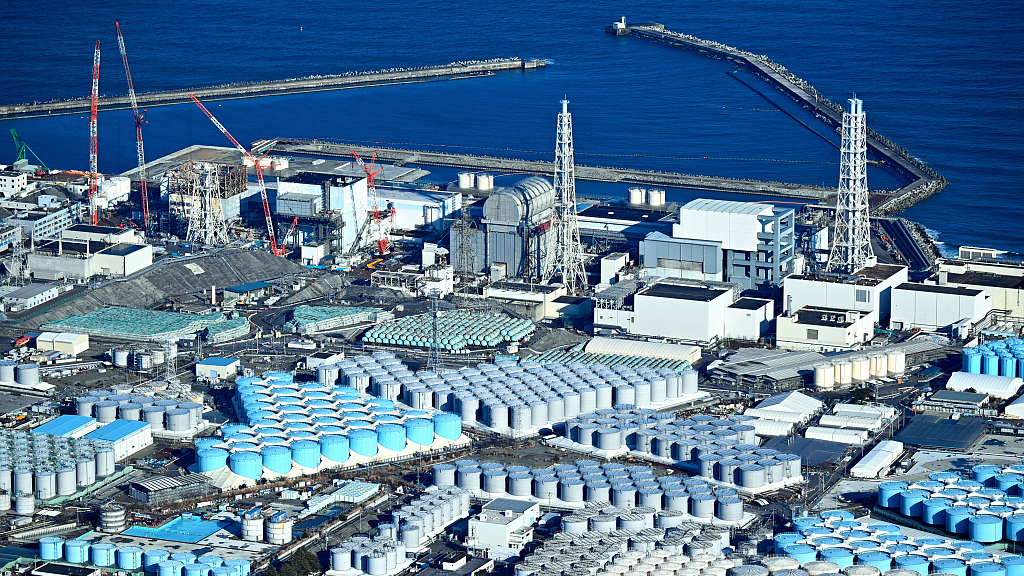
Damaged reactors and tanks with treated radioactive water are seen at TEPCO's Fukushima Daiichi Nuclear Power Plant in Okuma, Fukushima, Japan, January 19, 2023. /CFP
Damaged reactors and tanks with treated radioactive water are seen at TEPCO's Fukushima Daiichi Nuclear Power Plant in Okuma, Fukushima, Japan, January 19, 2023. /CFP
Leaders from multiple Pacific Island countries are calling upon the Japanese government to immediately stop its plans for dumping nuclear wastewater into the Pacific Ocean, a news agency of the International Press Syndicate Group has reported.
Papua New Guinea's Minister for Fisheries and Marine Resources Jelta Wong said that there is little doubt that the nuclear wastewater will find its way into ecosystems and food chains, harming people and the fisheries industries, according to a report published by InDepthNews on Monday.
"If this nuclear wastewater is discharged, it will be the 'Pacific Chernobyl' causing harm to our people for decades to come," Wong was quoted as saying.
"We are talking about more than 1 million tonnes of nuclear wastewater following along ocean currents, causing the mutation of human cells in muscles, bones and thyroid, leading to cancer and birth defects in future generations. The release of radioactive waste into the ocean is not acceptable to people of the Pacific."
Acting Fiji Prime Minister Manoa Kamikamica said that Fiji has been on high alert after Japan said it planned to discharge the Fukushima nuclear wastewater into the Pacific Ocean.
If the water treated by the Advanced Liquid Processing System is so safe, "why not reuse it in Japan for alternative purposes, in manufacturing and agriculture for instance?" he questioned.
A statement by Pacific Elders Voice (PEV) pointed out that Japan has failed to consult with the affected coastal countries, particularly the northern Pacific Island States.
"The climate and biodiversity emergencies we currently face are already presenting severe threats to our waters, and so a decision by any government to deliberately contaminate the Pacific with radioactivity because it is the most cost-effective option seems perverse," the statement said.
(With input from agencies)